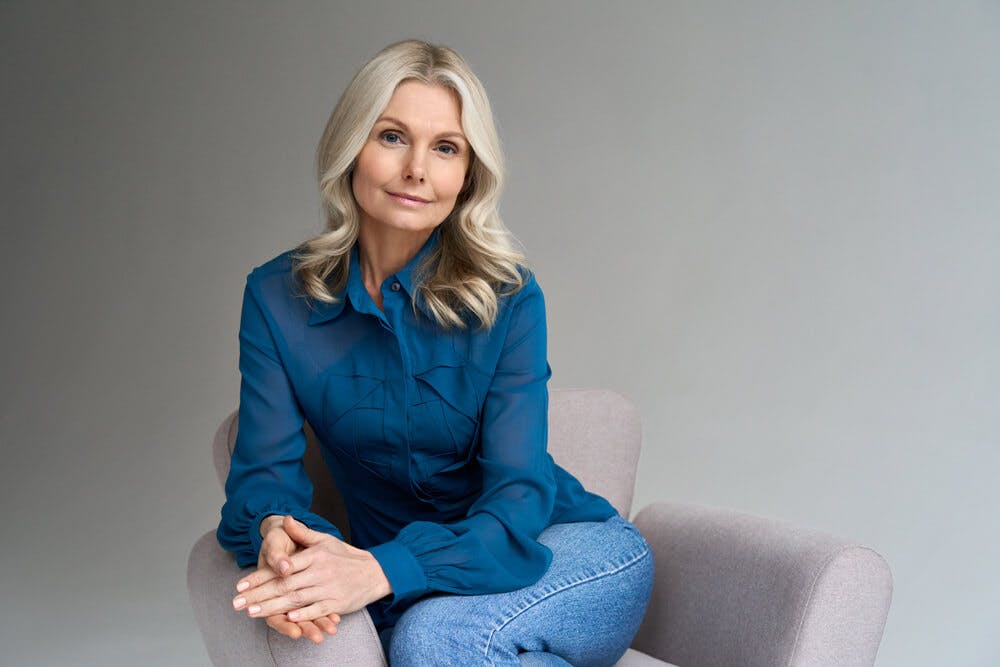The Role of The Coach In Advancing Gender Equity
Posted by Alexandra Lamb
With the arrival of International Women's Day 2023, we at BOLDLY have been reflecting on the progress that has been made towards gender equality and the significant work that still needs to be done. As a female-founded business, working in a predominantly female industry, we see gender issues on a daily basis, and seek to be a part of the positive move towards equity. We see that coaching can play a substantial role in advancing women's empowerment in the workplace.
What is Coaching and how does it help in professional development?
Coaching is a powerful tool for professional development, helping individuals to identify their strengths and weaknesses, set goals, and develop the skills and knowledge needed to achieve those goals. For women in particular, coaching can be an essential tool for women empowerment, providing a safe and supportive space to explore their ambitions, address imposter syndrome, brainstorm on how to tackle specific gendered issues, get general support and encouragement, and develop the confidence and skills needed to succeed in their careers.
However, coaching individual women alone is not enough to address the systemic barriers that prevent women from achieving their full potential in the workplace. Organisations must also take proactive steps to create a culture of inclusivity and equity, where women are given equal opportunities for advancement and are not held back by bias or discrimination.
Coaching, as a profession, can play a critical role in promoting gender equality and women leadership by helping organisations to identify and remove barriers that hold back women from advancing, including bias, stereotypes, and lack of access to leadership roles. At this systemic and societal level, coaching as a profession can have a real impact too, albeit over a long-term goal.

How do coaches help in supporting female talent empowerment in the workplace?
Here are some ways that we encourage our BOLDLY coaches to support women's empowerment in the workplace for both individuals and systems:
Developing leadership skills
Coaching can help women develop the leadership skills needed to advance in their careers within the current organisational system, including communication, conflict resolution, and decision-making. This can be particularly important for women, who face additional scrutiny and pressure in leadership roles where they operate within a work context mostly designed for men.
Navigating workplace dynamics
Coaching can provide women with strategies for navigating challenging relationships and bias, if not straight sex discrimination, including how to assert themselves effectively, build relationships and networks, and negotiate effectively for a set at the table and equitable pay, for example.
Balancing work and personal responsibilities
While not always the case, women often face additional challenges in balancing work and personal responsibilities, such as caregiving responsibilities. In most economies we coach in, female parents are assumed to be the primary caregiver by their organisations. Yet, the expectation to deliver work to the same standard and intensity of a non-primary-parent peer is significant. Coaching can help women develop strategies for managing their time and prioritising their responsibilities, designing their lives and negotiating with employers where needed, enabling them to succeed both at work and at home.
Setting and achieving goals
Coaching can help women set realistic and achievable goals for their careers and develop the skills and knowledge needed to achieve those goals. This can include building a professional network, developing new skills, and taking on new responsibilities.
Messaging equity at the organisation level
When meeting stakeholders and buyers of coaching, BOLDLY coaches are encouraged to raise general awareness of gender equity issues. Whether this simply be the use of the term ‘guys’ to refer to all staff, or larger issues of access to coaching and career advancement, salary and bonus discussions, or internal role modelling of parents within the organisation, our coaches can work together with HR to ensure the gender equity agenda is continuously advanced.

We at BOLDLY, especially our female coaches, are committed to advancing women in the workplace, and yet we acknowledge the limitations of the #IWD movement. As we reflect on the role coaches play here, it’s important to consider where the issues lie. International Women's Day celebrations have been criticised for a number of reasons, including:
- Tokenism: Critics argue that IWD is often used as a way to pay lip service to women's issues without taking any real action to address them. Some view it as a way for governments and companies to appear progressive without actually making any substantive changes to improve women's lives.
- Exclusion: e.g. women of color, LGBTQ+ women, and women with disabilities. IWD is often focused on the experiences of privileged women and does not take into account the intersectional nature of oppression.
- Commercialisation: companies use IWD as a marketing opportunity to sell products and services now. Some view this as a form of exploitation, as companies profit from the struggles of women while doing little to address the issues they face.
- Lack of accountability: IWD celebrations are often not accompanied by any real accountability measures to ensure that the issues facing women are being addressed. Without concrete action plans, IWD celebrations are little more than empty gestures.

Overall, while IWD celebrations have been praised for bringing attention to women's issues and inspiring change, there is also a need to be critical of how the day is celebrated to ensure that it is truly empowering and inclusive of all women. Coaches must be aware of this paradox - particularly as coaching is also an offering that is generally ubiquitous with a privileged few. Coaches are growing awareness of the role they can play in holding their clients accountable for gender equity, in not only their internal cultures but their products and services.
Coaching can be a powerful tool for empowering women in the workplace. By providing a supportive and inclusive environment for women to explore their ambitions and develop their skills, coaching can help break down the barriers that prevent women from achieving their full potential. However, coaching alone is not enough. Organisations must also take proactive steps to create a culture of inclusivity and equity, where women are given equal opportunities for advancement and are not held back by bias or discrimination. As we celebrate International Women's Day 2023, let us commit to working towards a world where all women can achieve their full potential. BOLDLY is a committed partner to this cause.
Join us in driving change towards a more equitable society for women! If you're interested in empowering yourself or others in the workplace, we invite you to connect with BOLDLY. Reach out to us at connect@boldly.app and let's work together to break down barriers through coaching and fostering inclusivity in the workplace.
About the Author:
Alexandra Lamb is an accomplished organisational development practitioner, with experience across APAC, North America, and MENA. With 20+ years in professional practice, conglomerates, and startups, she has collaborated with rapid-growth companies and industry innovators to develop leaders and high-performance teams. She is particularly experienced in talent strategy as a driver for business growth. Drawing from her experience in the fields of talent management, psychology, coaching, product development, and human-centred design, Alex prides herself on using commercial acumen to design talent solutions with true impact.




